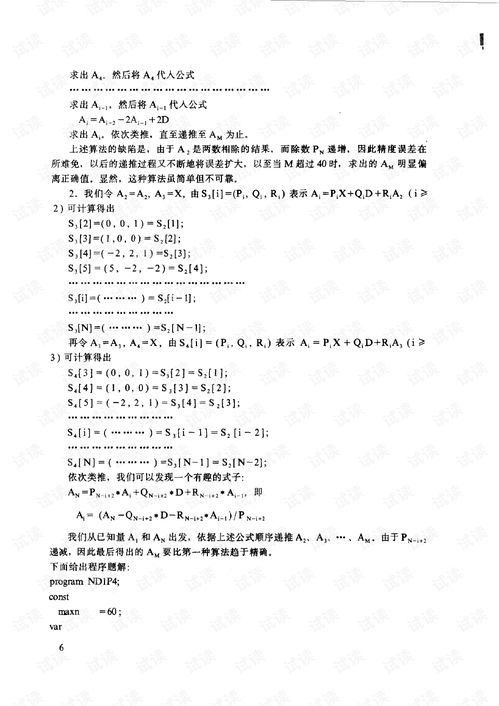算法和编程哪个难
Algorithmic Problems vs. Programming Problems: Understanding the Differences and Connections
Algorithmic and programming problems are both common in the realm of computer science and software engineering. While they share some similarities, they also have distinct characteristics. Let's delve into the key differences and connections between algorithmic problems and programming problems.
1. Definition:
Algorithmic Problems:
Algorithmic problems focus on designing efficient algorithms to solve computational tasks.
These problems often involve analyzing the time complexity, space complexity, and correctness of algorithms.
Examples include sorting algorithms, graph algorithms (e.g., shortest path, spanning trees), dynamic programming, and optimization problems.
Programming Problems:
Programming problems involve implementing solutions using programming languages.
These problems require translating algorithms or logic into executable code.
Examples include implementing data structures (e.g., linked lists, trees), solving mathematical problems, and writing code to accomplish specific tasks.
2. Focus:
Algorithmic Problems:
Emphasize algorithm design and analysis.
Focus on devising efficient solutions that optimize time and space complexity.
Often require understanding and applying algorithmic techniques and principles.
Programming Problems:
Focus on coding and implementation.
Require attention to syntax, language features, and programming paradigms.
Often involve debugging and optimizing code for readability and performance.
3. Skills Required:
Algorithmic Problems:
Strong understanding of algorithms and data structures.
Proficiency in algorithm design techniques (e.g., divide and conquer, dynamic programming, greedy algorithms).
Ability to analyze and compare algorithmic approaches for efficiency.

Programming Problems:
Proficiency in programming languages and related tools.
Knowledge of languagespecific syntax, libraries, and features.
Skill in debugging, testing, and optimizing code.
4. Connection:
Algorithmic Problems and Programming Problems are interconnected:
Solving algorithmic problems often requires implementing algorithms in code, making them programming problems.
Mastering programming skills is essential for effectively implementing algorithms and data structures.
Algorithmic problemsolving enhances programming proficiency by fostering algorithmic thinking and problemsolving skills.
5. Approach:
Algorithmic Problems:
Understand the problem requirements and constraints.
Design algorithms to solve the problem efficiently.
Analyze algorithm complexity (time and space).
Implement the algorithm in code (optional).
Programming Problems:
Understand the problem statement and requirements.
Choose appropriate data structures and algorithms.
Implement the solution in code.
Test, debug, and optimize the code for correctness and efficiency.
Conclusion:
In summary, algorithmic problems focus on designing efficient algorithms to solve computational tasks, while programming problems involve implementing solutions using programming languages. While they have distinct characteristics, they are interconnected, and proficiency in one area enhances skills in the other. Understanding the differences and connections between algorithmic and programming problems is crucial for becoming a proficient computer scientist or software engineer.









